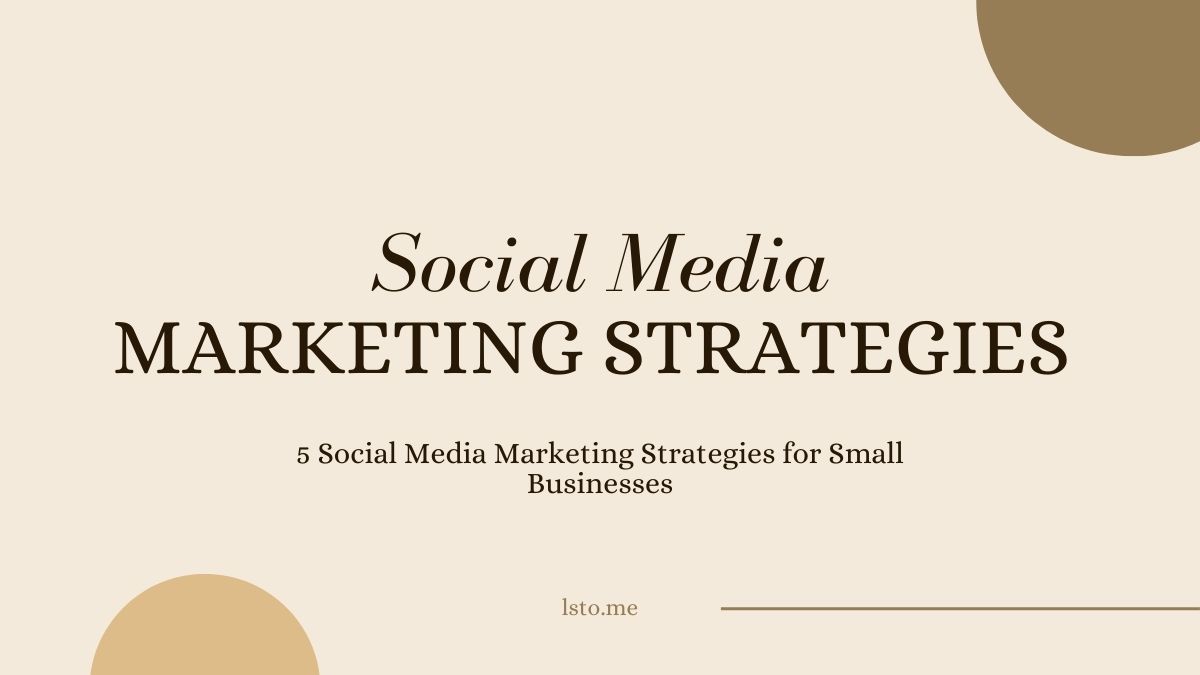
Social media is an integral part of modern marketing strategies, and for small businesses, it can be a powerful tool to build brand awareness and connect with potential customers. But with so many social media platforms and strategies to choose from, it can be challenging to know where to begin. In this blog post, we’ll explore five social media marketing strategies that small businesses can use to grow their brand and engage with their audience.
1. Choose the right platforms:
In today’s world of digital marketing, social media is a must-have platform for small businesses. However, with dozens of social media platforms to choose from, finding the right one can be overwhelming. Every platform has its unique features and audience, which means not all of them will be a perfect fit for every business.
Choosing the right social media platforms requires careful consideration of your target market and brand objectives. For instance, Facebook is an excellent platform to reach out to a wide audience while LinkedIn is best suited for B2B companies looking for networking opportunities. Instagram and Pinterest are ideal if you have visually appealing products or services that you want to showcase.
It’s also important to consider your available resources when choosing the right social media platforms.
2. Develop a content strategy:
Developing a content strategy is crucial for any business looking to succeed in social media marketing. Once you’ve identified the right platforms, it’s time to focus on creating content that resonates with your target audience. Your goal should be to provide informative and engaging content that will capture their attention and keep them coming back for more.
To begin developing your content strategy, start by identifying your target audience and researching what type of content they enjoy consuming. This can include anything from blog posts to videos, infographics, or podcasts. The key is to create content that addresses their pain points and provides solutions.
Next, focus on incorporating keywords into your content that align with your business goals and objectives. This will help improve search engine rankings and drive traffic to your website or social media profiles.
3. Engage with your audience:
In today’s digital era, social media has become an essential part of every business’s marketing strategy. However, it is not enough to simply create social media profiles and post content on them regularly. Engaging with your audience is crucial for building a strong online presence and establishing a loyal customer base. Social media is a two-way conversation, and businesses that actively participate in this conversation often see better results.
Responding to comments and messages from your audience is one of the best ways to engage with them. When customers leave feedback or ask questions about your posts, take the time to respond promptly and thoughtfully. This shows that you value their opinions and are invested in providing excellent customer service. Sharing user-generated content (UGC) is another effective way to engage with your audience. UGC refers to any content created by customers or fans of your brand, such as photos or videos featuring your products or services.
4. Leverage paid to advertise:
Small businesses often struggle to reach a wider audience, especially when they are just starting. However, paid social media advertising can be an effective way to overcome this hurdle and boost brand visibility. With the ability to target specific demographics and interests, small businesses can create a social media marketing strategy that reaches their ideal audience.
The cost-effectiveness of paid social media advertising is another huge advantage for small businesses. Compared to traditional advertising methods like print or TV ads, social media advertising allows you to create targeted campaigns at a lower cost. This means that even with a limited budget, small businesses can still maximize their return on investment (ROI) by reaching out to audiences who are more likely to convert into customers.
When it comes down to it, leveraging paid advertising is crucial for any successful social media marketing strategy for small business owners.
5. Analyze and adjust:
Social media marketing has become a necessary component of any business’s marketing strategy. Small businesses, in particular, can greatly benefit from an effective social media marketing plan. However, simply having a presence on social media is not enough. It’s essential to track and analyze your performance metrics regularly to determine what’s working and what’s not.
One crucial metric to track is engagement rates. This includes likes, comments, shares, and clicks on your content. High engagement rates indicate that your followers are interested in your content and are more likely to engage with your brand in the future. On the other hand, low engagement rates could mean that you need to adjust your content or posting schedule.
Another important metric to monitor is follower growth. While having a large number of followers may not necessarily translate into sales or conversions, it does increase brand awareness and credibility.
Conclusion
Social media marketing can be a powerful tool for small businesses to build their brand and engage with their audience. By choosing the right platforms, developing a content strategy, engaging with your audience, leveraging paid advertising, and analyzing and adjusting their strategies, small businesses can optimize their social media efforts and drive growth.